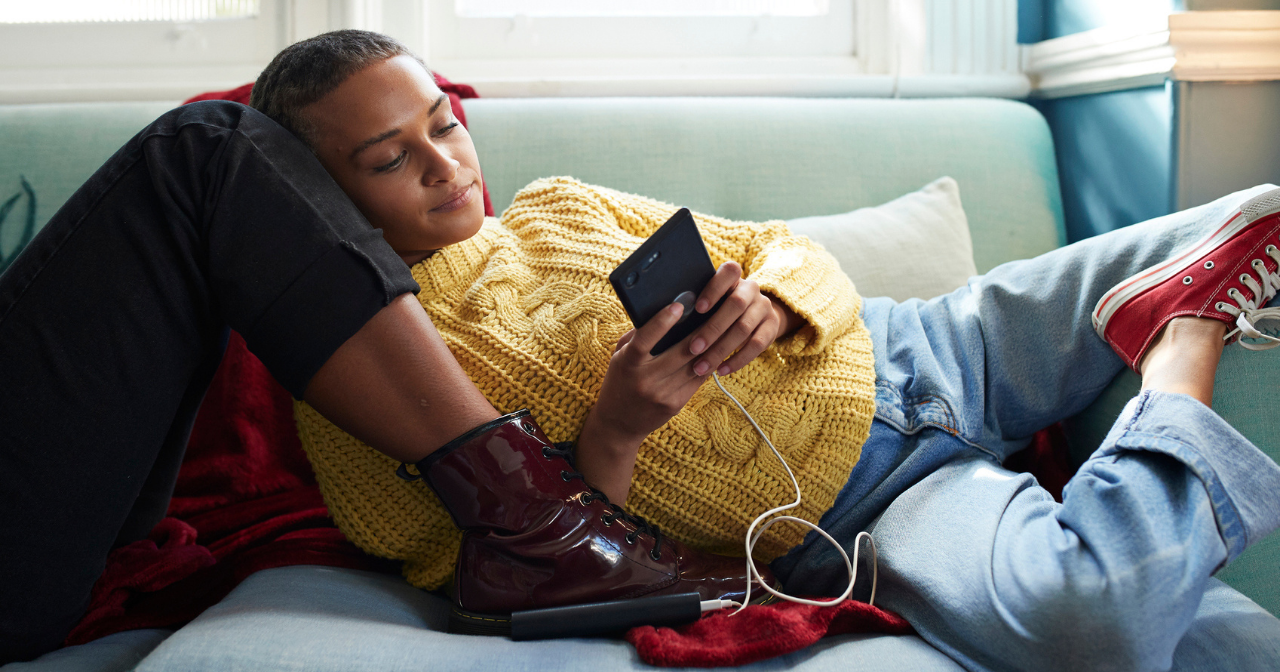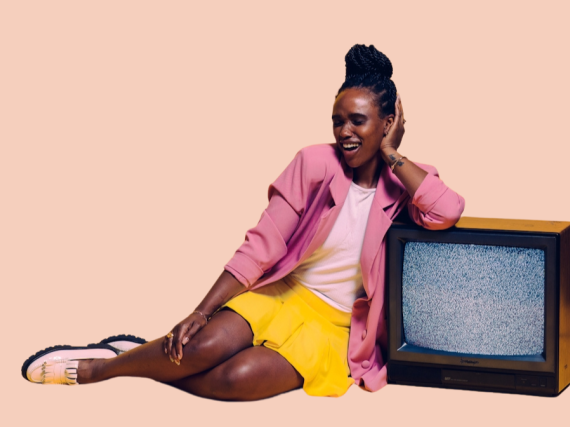5 Stigma-Busting Accounts to Follow this #LetsTalk Month
This week, we’re talking about how young people can talk productively amongst each other. And we can’t talk about young people communicating with each other without talking about social media! Despite a mixed reputation, social media can actually be a powerful tool for starting life-changing conversations. During Let’s Talk Month, diversify your feeds, follow these stigma-busting accounts, and share them with your friends and the young people in your life.
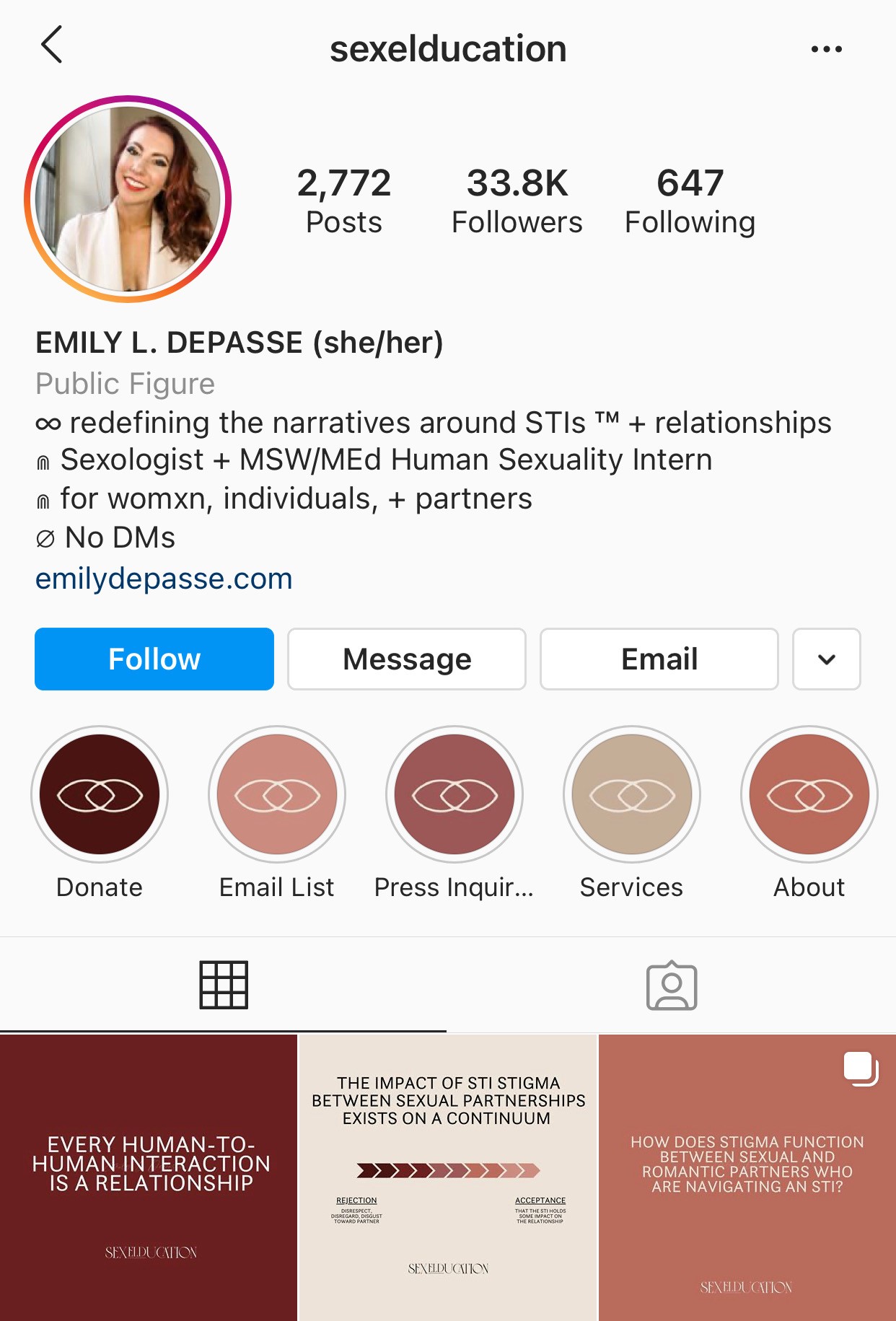
Emily L. Depasse is a Sexologist and MSW/MEd Human Sexuality Intern whose channel works to “redefine society’s narratives around STIs.” STI stigma centers around the false belief that an infection in your genitals is somehow morally worse than an infection anywhere else in your body. It’s based on the idea that sex, and especially sex outside of heterosexual, monogamous marriage, is immoral, wrong, and “dirty”—something that we know isn’t true! After publicly sharing her positive herpes diagnosis, Emily has worked to create a space where STI-positive individuals can share and learn using tangible tools to tackle stigma and shame. Her Instagram channel, SexELDucation, is an excellent resource for unlearning STI stigma, whether you have a positive diagnosis or not!
Cripping Up Sex With Eva
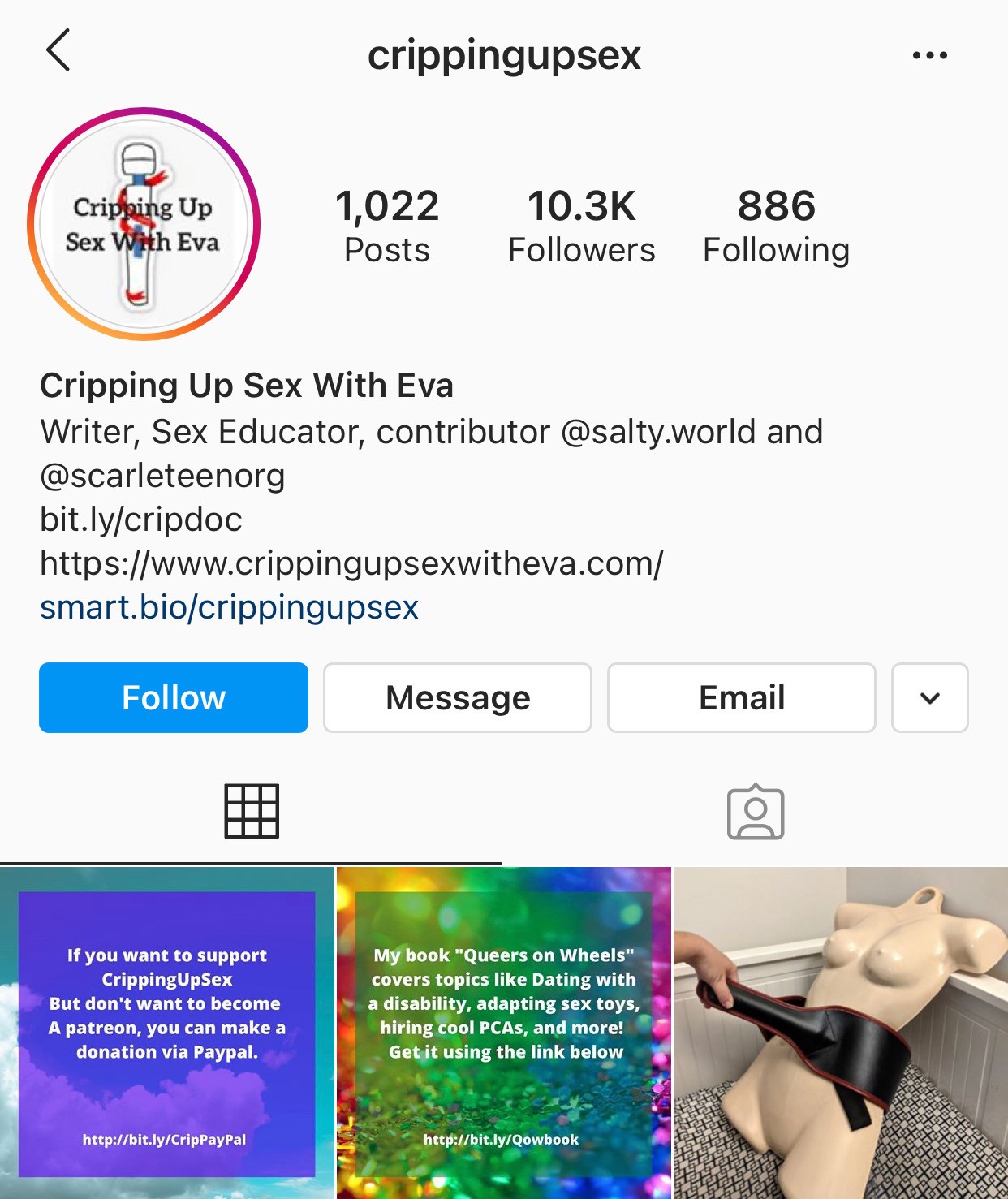
According to the CDC, 1 in 4 adults in the US live with a disability. So, while having a disability—or dating someone who does—isn’t such a rare thing, most sex education doesn’t address the intersection of disability and sex. After realizing that there weren’t many, or any, quality sex education resources for people with physical disabilities (and especially not for those are who are also LGBTQ+), Eva Sweeney took it up the task of writing the handbook herself. Eva, who is queer and has cerebral palsy, has been a sex educator and author for fifteen years. Her Instagram page, Cripping Up Sex With Eva, shows the world that people with physical disabilities can, and do, have sex. She offers classes, workshops, private consultations, and more.
Rafaella Fiallo, cocreator of Afrosexology
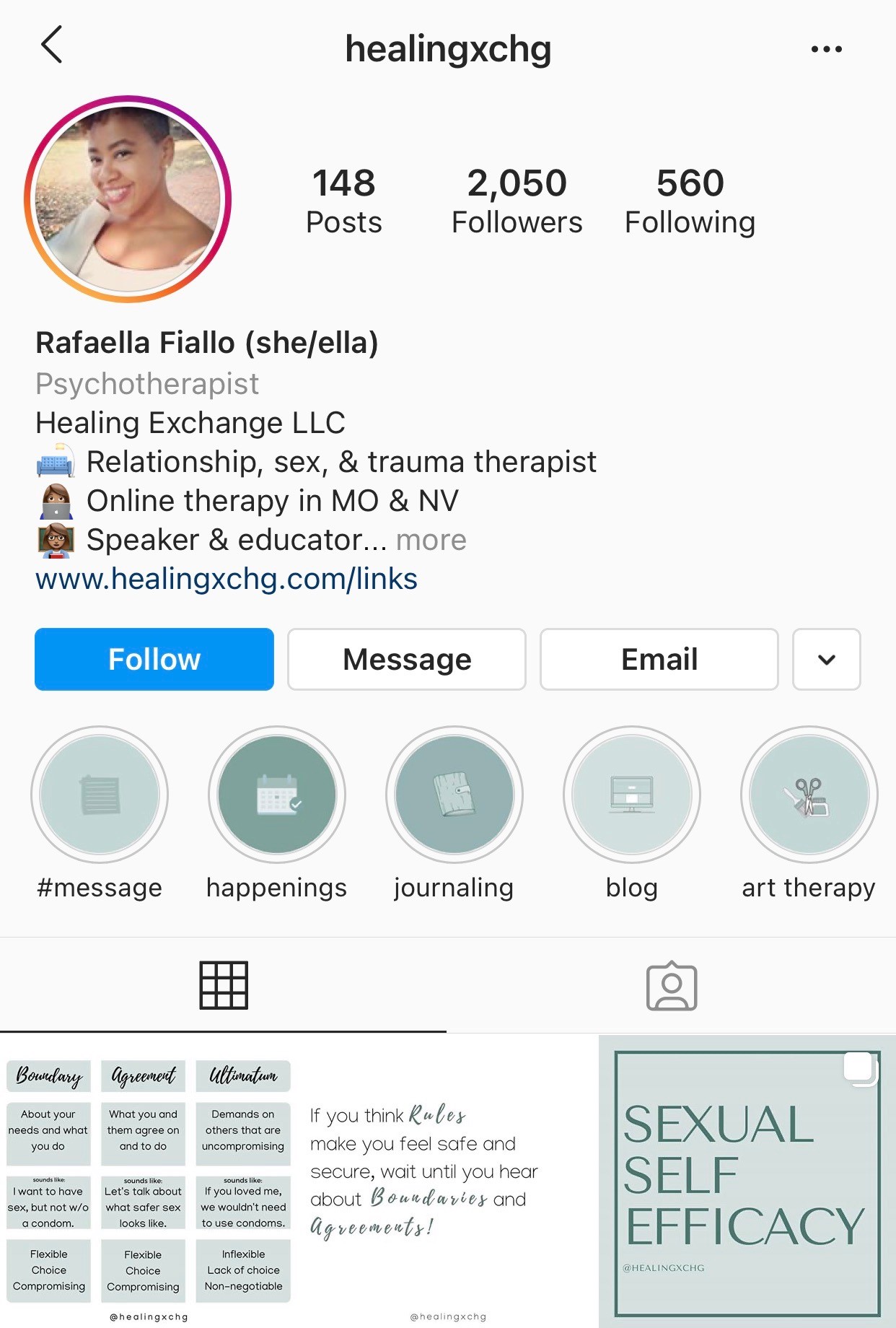
Rafaella Fiallo is a licensed Clinical Social Worker who specializes in working with people who have experienced sexual violence. She’s also an expert on sex and relationships. She offers person-centered therapy through Healing Exchange LLC. Rafaella’s Instagram account is an excellent source of support for people who are healing from sexual trauma. Her content helps bust the stigma around getting help for dealing with sexual trauma and shows that healing and recovery are within reach. Rafaella is also the co-founder of Afrosexology, an online spaced dedicated to Black people being able to openly discuss sexual exploration and liberation, where she uses her experience of providing healing tools for the Black community.

Hannah Witton is a YouTuber, podcaster, and sex-ed advocate from London who uses her massive online following to educate people about all things sex, relationships, and bodies. With almost a decade of content, Hannah’s YouTube channel covers a wide variety of inclusive, evidence-based topics. Hannah also lives with a stoma and incorporates chronic illness and invisible disability awareness into her content. Tune in every Tuesday for new videos! You can also follow her on Instagram.
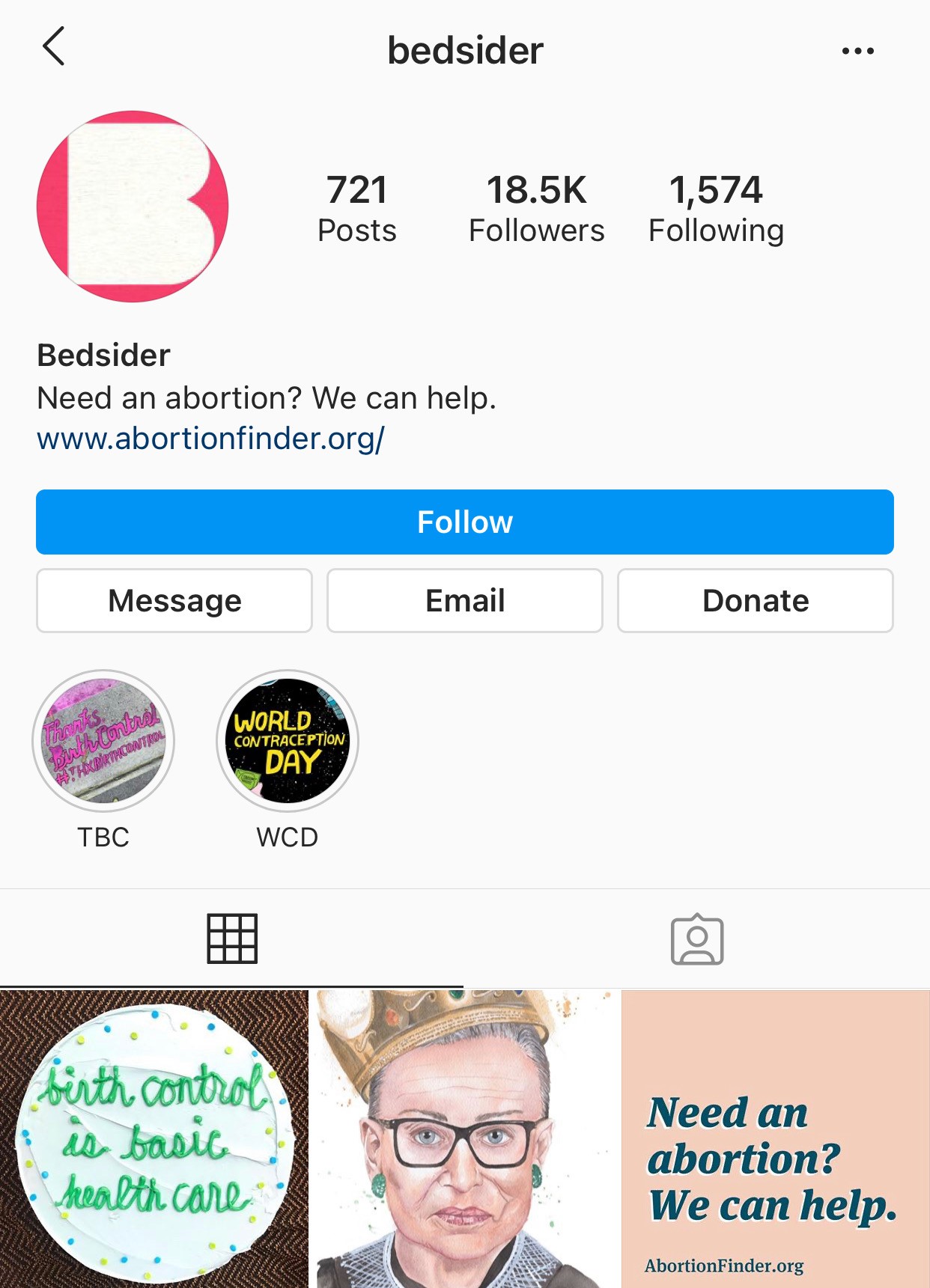
Contraception shouldn’t be controversial. It’s basic health care! Knowing what birth control method works best for your body, your timeline, and your lifestyle is key to living your best life. Our online birth control support network, Bedsider, has all the resources you need to make informed choices about your birth control and your relationships. Their mission is to normalize conversations about sex and birth control with evidence-based information. Bedsider’s annual Thanks, Birth Control Day is an online event to celebrate birth control and everything it makes possible for people everywhere. Join the conversation with #ThxBirthControl on November 18, 2020, and show everyone what birth control access means to you.
No matter the motivation, getting stigma-busting conversations started through social media can be a powerful tool for change. Not only do accounts like these create a community of people of similar experiences, but they help all of us slow down from our normal feed to consider how the world could look if everyone was brave enough to share their truth. This Let’s Talk Month, take some inspiration from one of these pages to talk about something that you usually wouldn’t! You never know the power your voice could have.
